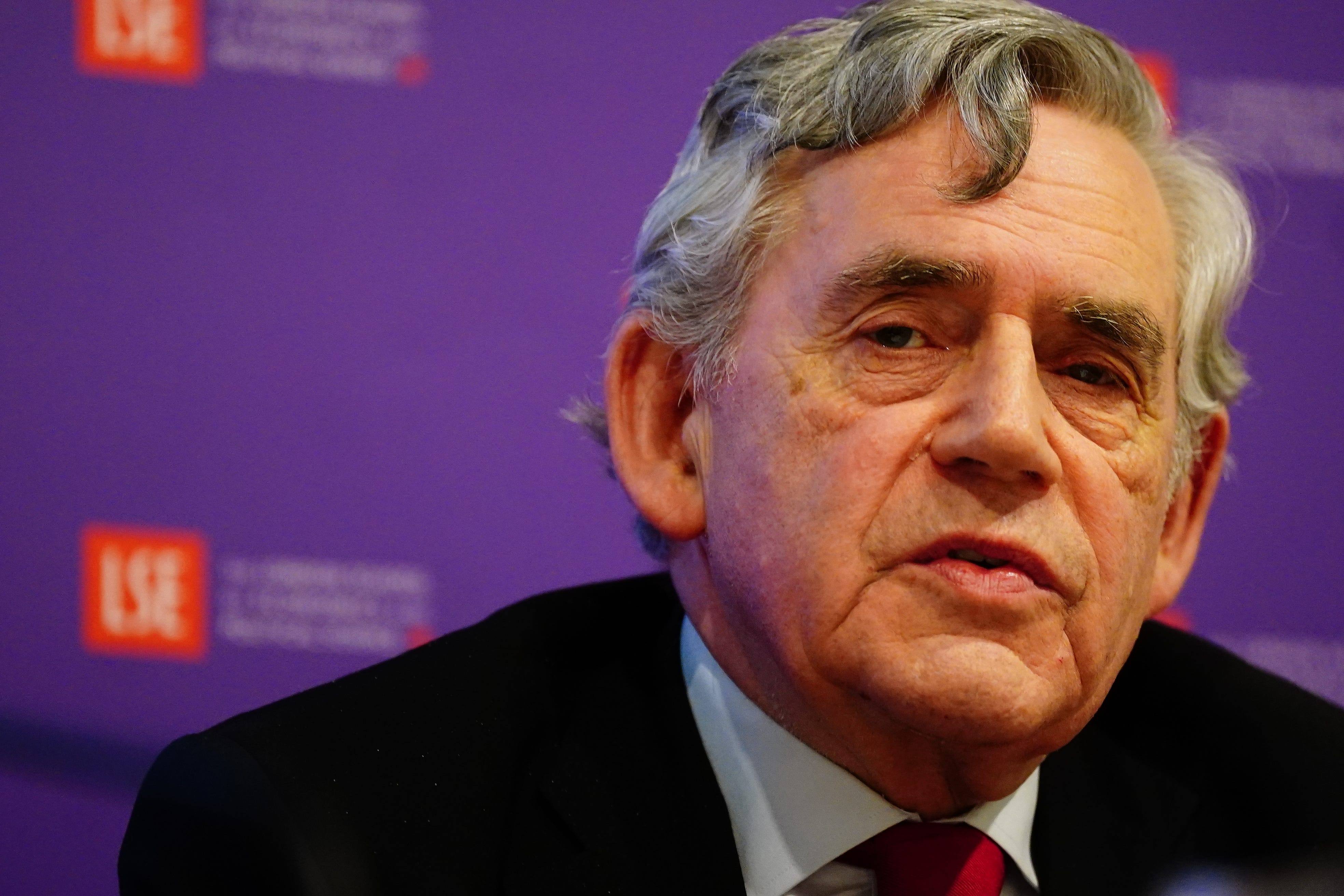Gordon Brown warns of ‘poverty epidemic’
The former prime minister is urging businesses to donate hygiene goods to help families struggling with bills.

Your support helps us to tell the story
From reproductive rights to climate change to Big Tech, The Independent is on the ground when the story is developing. Whether it's investigating the financials of Elon Musk's pro-Trump PAC or producing our latest documentary, 'The A Word', which shines a light on the American women fighting for reproductive rights, we know how important it is to parse out the facts from the messaging.
At such a critical moment in US history, we need reporters on the ground. Your donation allows us to keep sending journalists to speak to both sides of the story.
The Independent is trusted by Americans across the entire political spectrum. And unlike many other quality news outlets, we choose not to lock Americans out of our reporting and analysis with paywalls. We believe quality journalism should be available to everyone, paid for by those who can afford it.
Your support makes all the difference.The cost-of-living crisis is developing into a public health crisis amid a “poverty epidemic”, former prime minister Gordon Brown is warning.
He released research suggesting that almost four million people were now living below the so-called safety net.
Mr Brown said GPs across the UK were reporting that patients were asking for prescriptions for basic childcare items such as nappies.
As many as four million of our fellow British citizens, many actually in work, are now trapped in life below the safety net
He urged businesses to donate hygiene goods such as toilet rolls, soap and toothpaste to charities to help families struggling to pay bills.
Mr Brown said: “The welfare state has been systematically shredded over the last decade. Instead of being supported in hard times, the consequence is that as many as four million of our fellow British citizens, many actually in work, are now trapped in life below the safety net.
“This life means being unable to afford basics such as clothing, toiletries, laundry and bedding.
“It means having to cut back on essentials such as food and heating because of cuts to benefits. For 700,000 children, it means having to share a bed. For nearly half a million, it means sleeping on the floor.
“Far from getting better, the poverty crisis we’ve seen over the winter is now turning into a public health and hygiene emergency with families unable even to keep their children clean.”
Mr Brown urged the Chancellor Jeremy Hunt to order a root-and-branch review of the Universal Credit system.
The former Labour prime minister set out plans to deliver an emergency service of household goods via the “multibank” model, which he has helped to launch.
Six multibanks are expected to be operational in England, Wales and Scotland by the end of the year.
Barnardo’s research suggests that there could be around 700,000 children sharing beds and 440,000 children sleeping on the floor because they do not have a bed of their own.
Lynn Perry, Barnardo’s chief executive, said: “Bed poverty is just one aspect of child poverty, yet it starkly illustrates the challenges faced by families who can’t afford the essentials like energy bills or food.
“The majority of families receiving Universal Credit are in work, and many are struggling for reasons beyond their control – such as a family break-up, the death of a partner, or someone losing a job amid the cost-of-living crisis.
“The Government must take urgent action to address these deep-rooted issues.”
A Government spokesperson said: “There are 1.7 million fewer people living in absolute poverty compared to 2010, including 400,000 children, but we know people continue to struggle so are providing record cost-of-living support to those most vulnerable worth an average £3,700 per household and are raising benefits this April.
“But we know work is the best way to financial security, which is why we are investing billions through our Back to Work Plan, expected to help over a million people into jobs, as well as extending our childcare offer while curbing inflation and cutting taxes so people get more of the money they earn.”